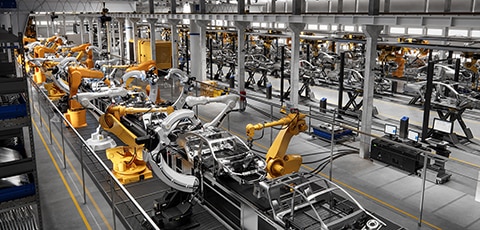
Weekly Financial Trends and Insights
Every week in our Key Wealth Institute emails, we dive into trending topics and their potential impacts to investors to deliver timely insights and advice from our in-house experts. Here, you’ll find all of our Key Questions in one place, so you always have access to the latest market information.

Within Key Wealth, we design customized portfolio solutions comprised of high-quality, US publicly traded securities, principally stocks and bonds managed by my colleagues led by Steve Hoedt (equities) and Rajeev Sharma (fixed income). To complement these holdings, we utilize a wide array of investment vehicles spanning the full spectrum of asset classes. Moreover, our investment platform is completely “open architecture," meaning it consists of options solely selected based on our clients’ best interests.

In the nearly 16 years since the S&P 500 bottomed in the wake of the Global Financial Crisis (in March 2009), technology stocks have vastly outperformed the broader stock market, returning an annualized +20.9% vs. +16.3% for the S&P 500 (as of 1/31/25), and as result, these stocks now represent sizeable allocations within many portfolios.

Earnings reporting season for the recently ended quarter is nearly complete, and between the flood of activity from the new administration and the emergence of a potential breakthrough moment in Artificial Intelligence (“AI”), it has been an extremely eventful one. We analyzed dozens of such reports and identified three “key themes” that best summarize the quarter.

The devastating wildfires in Greater Los Angeles are likely to be the costliest natural disaster in US history, and our most heartfelt thoughts go out to all those affected by these tragic events. The human impact is immeasurable and the loss of lives, homes, businesses, and schools have placed communities in peril as they begin to recover and rebuild. The financial impact is staggering: over 10,000 structures have been destroyed in one of the most expensive real estate markets in the country.

On Jan. 5, 2025, President Joe Biden signed the Social Security Fairness Act of 2023, H.R. 82. This legislation eliminates two provisions that previously reduced Social Security benefits for public servants and other retirees. The act repeals the Windfall Elimination Provision (WEP) and the Government Pension Offset (GPO). The repeal is retroactive to Jan. 1, 2024.

If you turned on your favorite financial news network or picked up a financial newspaper at any point in 2024, you likely read about an investment theme that has captivated Wall Street and Main Street alike. The “Artificial Intelligence (AI) Revolution” has created huge waves across financial markets as shares of chipmakers have skyrocketed higher. Companies outside of technology stocks, such as power producers and electrical component manufacturers, also recorded outsized returns last year.